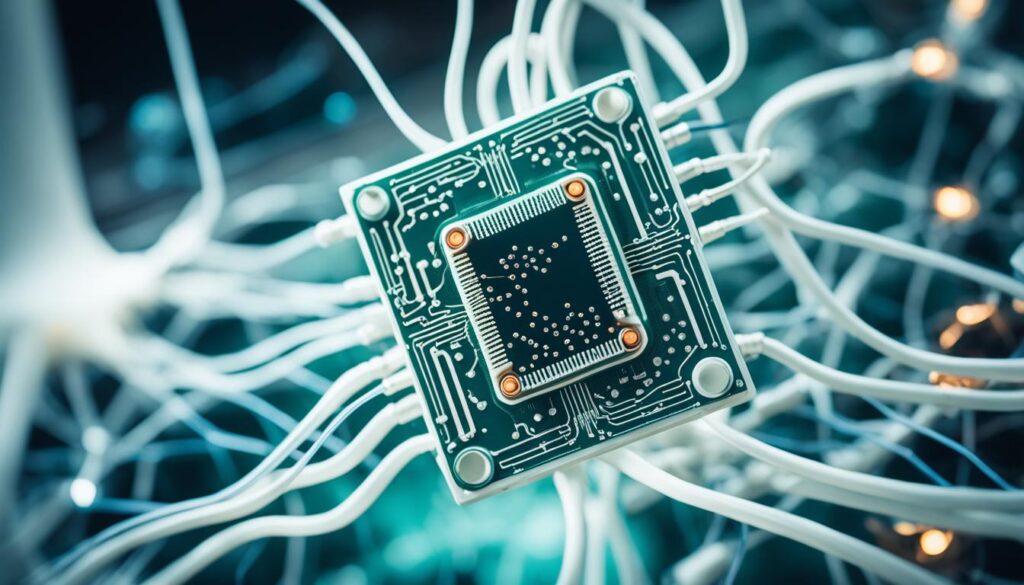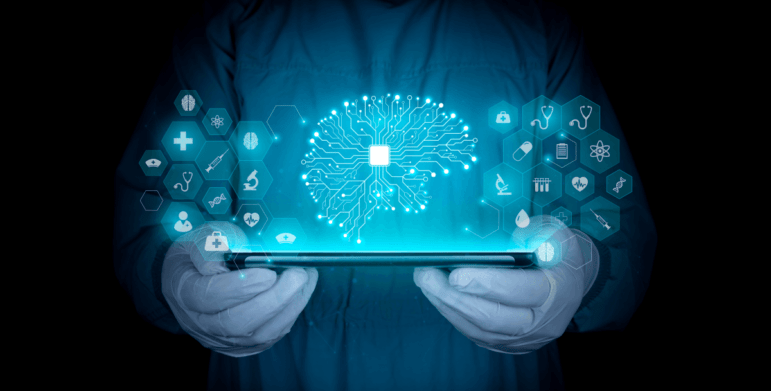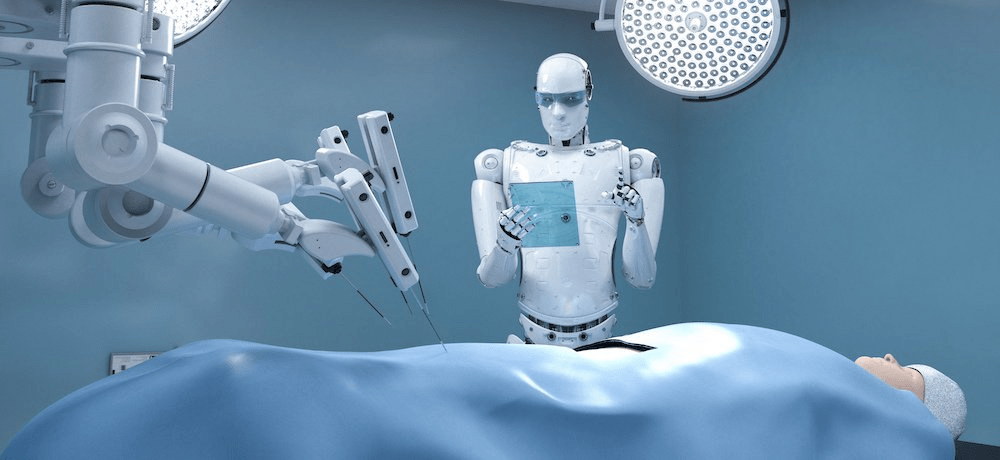Did you know that artificial intelligence (AI) is revolutionizing the medical device industry, improving patient safety and outcomes? Advances in AI technology, such as machine learning and natural language processing, are transforming the way healthcare providers analyze patient data and make critical decisions. With the integration of AI, medical devices have gained the ability to analyze complex medical data, detect anomalies, and personalize treatment plans
AI’s potential to improve the accuracy and efficiency of medical devices is immense. However, it also brings challenges in terms of data privacy, regulatory compliance, and ensuring the security of patient information. Healthcare professionals and regulatory bodies must carefully navigate these challenges to fully harness the benefits of AI in medical devices.

Machine learning is a powerful subset of artificial intelligence (AI) that has revolutionized the field of medical devices. By leveraging machine learning algorithms, these devices are able to learn from vast amounts of data and continuously improve their performance over time. With the ability to recognize patterns in medical images, predict patient outcomes, and assist in treatment planning, machine learning enables healthcare providers to deliver more accurate diagnoses, personalized treatment plans, and improved patient outcomes.
Predictive analytics is a key application of machine learning in medical devices. By analyzing vast amounts of patient data, these devices can provide healthcare professionals with valuable insights and predictions, allowing for more informed and precise treatment planning. With the aid of machine learning algorithms, medical devices are able to assess a patient’s condition, identify potential risks or complications, and recommend the most appropriate course of action. This not only improves the quality of care but also enhances patient safety and overall treatment outcomes.
One of the main advantages of machine learning in medical devices is its ability to process complex data and extract meaningful information. For example, medical imaging analysis can be significantly enhanced through machine learning algorithms, enabling more accurate detection of abnormalities and diseases. By training on large datasets of medical images, machine learning algorithms can learn to identify subtle patterns and markers that may indicate the presence of a specific condition or disease. This improves the efficiency and effectiveness of medical imaging analysis, helping healthcare professionals make faster and more accurate diagnoses.
Furthermore, machine learning algorithms can contribute to the development of personalized medicine. By analyzing individual patient data, including medical history, genetic information, and lifestyle factors, medical devices can generate personalized treatment plans tailored to each patient’s unique needs. This approach improves the efficacy of treatments and minimizes the risks associated with a one-size-fits-all approach.
In summary, machine learning plays a crucial role in the advancement of medical devices and healthcare practices. By harnessing the power of predictive analytics, treatment planning, and personalized medicine, these devices have the potential to transform patient care and improve outcomes. As the field of machine learning continues to evolve, we can expect even more innovative and impactful applications in the medical device industry.
APPLICATION | DESCRIPTION |
Medical imaging analysis | Machine learning algorithms analyse medical images to detect anomalies, tumours, and other subtle changes, improving diagnostic accuracy and expediting treatment. |
Predictive analytics | Machine learning algorithms analyze patient data to predict outcomes, helping healthcare professionals make more informed decisions and improve patient management. |
Treatment planning | Machine learning algorithms assist in developing personalized treatment plans based on individual patient characteristics, optimizing efficacy and reducing risks. |
Remote monitoring | Machine learning algorithms process data from wearable devices to track patient health remotely, enabling early detection of potential issues and proactive interventions. |
Decision support | Machine learning algorithms provide decision support to healthcare professionals, aiding in diagnosis, treatment selection, and care management. |
Deep learning, a sophisticated form of machine learning, utilizes artificial neural networks to mimic human brain processes. By understanding complex relationships within medical data, such as medical images, deep learning enables medical devices to facilitate accurate diagnoses from images such as X-rays, MRIs, and CT scans.
Medical imaging analysis plays a vital role in diagnostic and treatment planning processes. With deep learning algorithms, medical devices can identify subtle patterns and abnormalities that may be challenging for human observers to detect. This advanced technology improves the accuracy and efficiency of medical imaging analysis, leading to more accurate diagnoses.
Utilizing artificial neural networks, deep learning allows medical devices to analyze vast amounts of medical imaging data and recognize patterns that may not be noticeable to the human eye. It enables devices to make precise and confident diagnostic decisions, enhancing the overall quality of patient care.
The integration of deep learning algorithms in medical devices expedites the diagnosis and treatment planning process. By providing accurate diagnoses, medical professionals can develop customized treatment plans that cater to individual patients’ needs. This technology empowers healthcare professionals to make informed decisions and improve patient outcomes.
The adoption of deep learning in medical devices offers several advantages:
Deep learning is transforming the field of medical imaging analysis and revolutionizing the way healthcare professionals diagnose and treat patients. The integration of this sophisticated technology in medical devices holds great promise for accurate diagnoses and improved patient care.
DEEP LEARNING IN MEDICAL DEVICES | ADVANTAGES |
Utilizes artificial neural networks to mimic human brain processes. | Accurate Diagnoses |
Enables accurate diagnoses from medical images (X-rays, MRIs, CT scans) | Efficient Medical Imaging Analysis |
Improves the accuracy and efficiency of medical imaging analysis | Enhanced Precision |
Facilitates rapid diagnosis and personalized treatment planning | Improved Patient Outcomes |

Natural language processing (NLP) plays a pivotal role in the advancement of medical devices. With the ability to comprehend and respond to human language, NLP technology has far-reaching applications in healthcare.
One of the key areas where NLP is crucial is in electronic health record (EHR) analysis. By leveraging NLP algorithms, medical devices can extract valuable insights from vast amounts of patient data stored in EHR systems. This enables healthcare providers to make more informed decisions and improve patient care.
NLP in medical devices also greatly enhances clinical documentation. By automatically analyzing and summarizing medical notes, reports, and documentation, NLP technology saves time for healthcare professionals, allowing them to focus more on patient care.
Moreover, NLP facilitates effective patient communication. Medical devices equipped with NLP capabilities can understand patients’ questions and concerns, and provide relevant information and responses. This improves patient engagement, satisfaction, and overall healthcare outcomes.
As NLP continues to evolve, it holds immense potential for revolutionizing healthcare. The integration of NLP technology in medical devices empowers healthcare providers with valuable insights from patient data, streamlines clinical documentation, and enhances patient communication and engagement. By leveraging the power of NLP, medical devices are paving the way for a more efficient and patient-centric healthcare system.
Robotic surgery has undergone remarkable advancements with the integration of AI-driven surgical systems, ushering in a new era of precision, stability, and control in surgical procedures. By harnessing the power of artificial intelligence, these systems enhance the capabilities of surgeons, leading to improved patient outcomes and reduced complications.
The fusion of robotic technology and AI algorithms allows surgical procedures to be performed with unparalleled precision. Surgeons can rely on the AI-driven systems to assist them in intricate and delicate procedures, enabling them to achieve greater accuracy and control. The precision offered by these systems minimizes the risk of human error, ensuring optimal surgical outcomes.
Furthermore, AI-driven surgical systems bring remarkable stability to the operating room. Through advanced algorithms and sensors, these systems continuously monitor and adjust to the slightest movements, compensating for tremors and enhancing overall stability during surgery. This stability empowers surgeons to perform procedures with utmost confidence and precision, resulting in safer surgeries and improved patient experiences.
AI also plays a pivotal role in enhancing the control surgeons have over the robotic surgical systems. These systems are designed to adapt to the surgeon’s commands and movements, translating their expertise into seamless robotic actions. With AI-driven surgical systems, surgeons can navigate complex anatomical structures with increased dexterity and finesse, significantly augmenting their ability to perform intricate procedures.
As AI continues to evolve, the combination of robotic surgery and AI-driven surgical systems will unlock new possibilities in the field of healthcare. Surgeons will be able to leverage the synergistic potential of these technologies to push the boundaries of surgical innovation and improve patient care.

AI has revolutionized the field of medical imaging analysis, empowering healthcare professionals with advanced tools to detect anomalies, tumors, and other subtle changes that may be missed by human observation. By harnessing the power of artificial intelligence, medical imaging analysis is now more accurate and efficient than ever before.
Through machine learning algorithms and deep learning techniques, AI can analyze vast amounts of medical image data, such as X-rays, MRIs, and CT scans, in a fraction of the time it would take a human radiologist. This expedites the diagnosis process, allowing healthcare providers to make timely treatment decisions and improve patient outcomes.
With anomaly detection capabilities, AI can identify abnormalities in medical images with high precision, enabling early detection of diseases and conditions. This not only saves lives but also reduces the need for invasive procedures and unnecessary tests, ultimately leading to cost savings in healthcare.
Moreover, AI-powered medical imaging analysis enhances the accuracy of diagnosis by minimizing human error and providing objective interpretations of medical images. It serves as a valuable second opinion tool, supporting healthcare professionals in making informed decisions and reducing diagnostic uncertainty.
As AI continues to advance and evolve, medical imaging analysis will further improve, offering healthcare professionals powerful tools to aid in diagnosis, prognosis, and treatment. The integration of AI in medical imaging analysis expedites the delivery of accurate and timely care, positively impacting patient lives.
The integration of AI into medical devices is revolutionizing the healthcare industry. AI-powered devices are enhancing diagnostic accuracy, improving personalized treatment plans, and ultimately leading to better patient outcomes. By leveraging advanced computational algorithms and machine learning techniques, medical devices can analyze complex medical data, recognize patterns, and make informed predictions.
However, it is crucial to address key challenges such as data privacy and regulatory compliance to ensure the successful integration of AI in medical devices. Protecting patient data and maintaining the security of medical devices are paramount in providing safe and effective healthcare. Additionally, interdisciplinary collaboration between healthcare professionals, engineers, and regulatory bodies is essential to implement AI in medical devices seamlessly.
As AI technology continues to advance, it holds immense potential to transform the medical device industry and improve patient care. The healthcare industry must embrace the opportunities presented by AI while keeping patient safety and positive patient outcomes at the forefront. By harnessing the power of AI in medical device innovation, we can drive significant advancements in healthcare delivery and improve the lives of patients worldwide.
The AI-powered transformation in the medical device industry is multifaceted, enhancing patient care, efficiency, and patient safety. By integrating AI algorithms and machine learning techniques, these devices with AI can analyze medical data more accurately and swiftly than traditional methods. This capability leads to faster diagnostics, personalized medicine, and predictive analytics for preemptive treatment strategies. Furthermore, AI in medical devices supports healthcare providers by offering tools for enhanced monitoring and management of patient data, thereby enriching the quality of care.
AI and machine learning algorithms significantly bolster cybersecurity in healthcare by automating the detection of threats and anomalies within the medical device network and healthcare providers‘ systems. Through constant learning and adaptation, AI technologies can identify potential cyber threats more efficiently than traditional software, reducing the risk of data breaches and ensuring the safety of sensitive patient data. This advanced protection is crucial in an era where cyber threats are becoming more sophisticated and targeted against the healthcare industry.
AI-powered medical devices improve patient care by enabling quicker, more accurate diagnoses, personalized treatment plans, and proactive health management. By leveraging AI algorithms to analyze medical data, these devices can detect abnormalities that might be overlooked by human eyes, especially in complex cases. Additionally, they facilitate remote monitoring, allowing healthcare providers to maintain continuous care, thereby enhancing patient safety and outcomes.
Absolutely! AI in medical devices plays a significant role in elevating patient safety. These smart devices can continuously monitor patient data, detect abnormalities early, and even predict potential health issues before they become serious. This way, AI-powered medical devices can alert healthcare providers to intervene promptly, potentially saving lives. It’s like having a tireless guardian angel by each patient’s side, ensuring they receive the best care possible.
Integrating AI with medical devices presents several challenges:
These challenges are crucial to address for the safe and effective integration of AI in medical devices.
By teaming up with Warwick Consulting, you secure a dedicated partner across a spectrum of services. Our unwavering commitment is centered on assisting you in conquering hurdles, ensuring compliance, and strategically guiding your enterprise towards sustained success. Whether you’re in need of non-compliance rectification, software assurance, cybersecurity, SaMD, research and development, or verification and validation, we’re here to fortify your path to excellence in every facet of your journey.
Get in touch today to discuss your specific requirements and unlock the potential of our comprehensive service offerings.